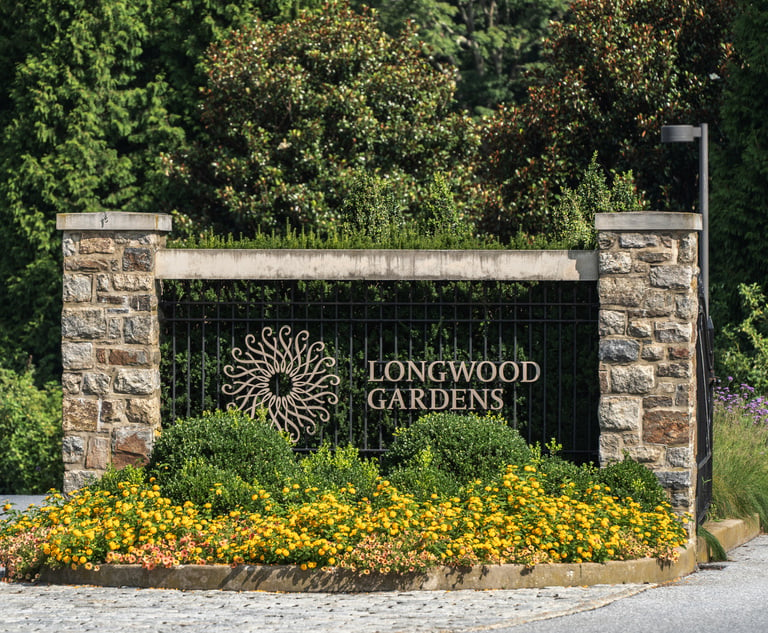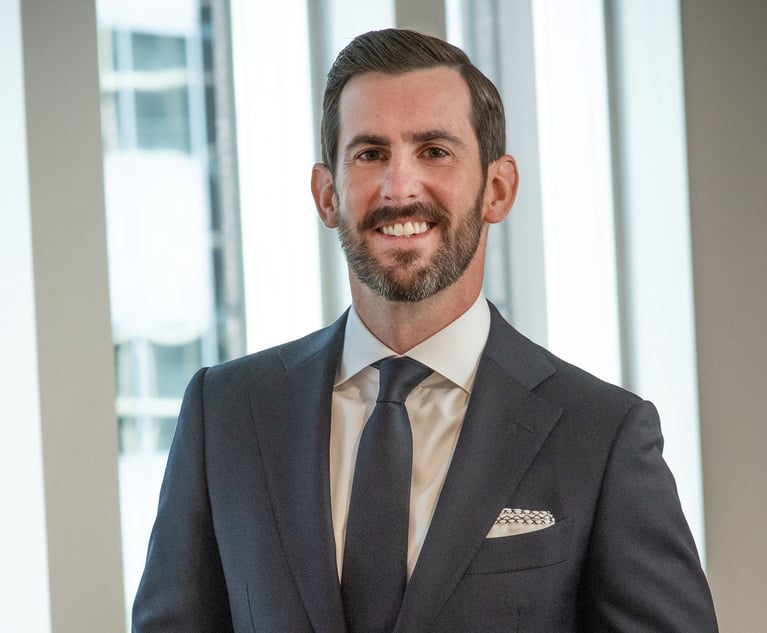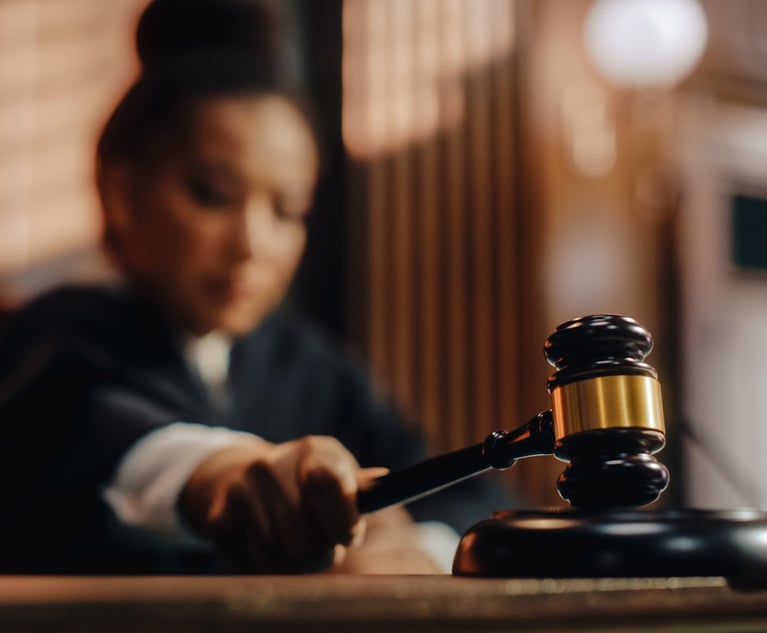 Edward Kang, with Kang Haggerty. Courtesy photo
Edward Kang, with Kang Haggerty. Courtesy photo Battle of the Experts (Standards): 'Frye,' 'Daubert' and Federal Rule of Evidence 702
Litigators preparing to qualify or challenge an expert witness must be ready to navigate several obstacles in admitting or excluding expert testimony. With the new amendment to Federal Rule of Evidence 702 coming into effect, litigators should take note of changes and incorporate them into their decision-making regarding expert testimony.
November 22, 2023 at 11:18 AM
9 minute read
Expert witnesses can aid jurors in understanding complex issues, and they often significantly impact the success or failure of a case. Litigators preparing to qualify or challenge an expert witness must be ready to navigate several obstacles in admitting or excluding expert testimony. With the new amendment to Federal Rule of Evidence 702 coming into effect, litigators should take note of changes and incorporate them into their decision-making regarding expert testimony.
'Frye,' 'Daubert' and Federal Rule of Evidence 702
Federal Rule of Evidence 702 controls who can testify as an expert witness in federal court and how these experts are qualified. FRE 702 affects the admissibility, not merely the weight of the evidence. Before Daubert, courts followed the Frye standard, under which scientific evidence could be admitted only if it had enjoyed "general acceptance" in the relevant scientific community. See Frye v. United States, 293 F. 1013 (D.C. Cir. 1923). The Supreme Court's Daubert decision shifted some of the responsibility for evaluating the reliability of an expert's testimony to the trial judge, charging them with acting as "gatekeepers" to exclude unreliable expert testimony from the courtroom. See Daubert v. Merrell Dow Pharmaceuticals, 509 U.S. 579 (1993).
This content has been archived. It is available through our partners, LexisNexis® and Bloomberg Law.
To view this content, please continue to their sites.
Not a Lexis Subscriber?
Subscribe Now
Not a Bloomberg Law Subscriber?
Subscribe Now
NOT FOR REPRINT
© 2025 ALM Global, LLC, All Rights Reserved. Request academic re-use from www.copyright.com. All other uses, submit a request to [email protected]. For more information visit Asset & Logo Licensing.
You Might Like
View All

With New Civil Jury Selection Rule, Litigants Should Carefully Weigh Waiver Risks
6 minute read
Litigating the Written Word: Parol Evidence Rule and the Gist of the Action Doctrine in Fraud Claims
6 minute read
Phila. Court System Pushed to Adapt as Justices Greenlight Changes to Pa.'s Civil Jury Selection Rules
5 minute readTrending Stories
- 1Plaintiff Argues Jury's $22M Punitive Damages Finding Undermines J&J's Talc Trial Win
- 2Bannon's Fraud Trial Delayed One Week as New, 'More Aggressive,' Defense Attorneys Get Ready
- 3'AI-Generated' Case References? This African Law Firm Is Under Investigation
- 4John Deere Annual Meeting Offers Peek Into DEI Strife That Looms for Companies Nationwide
- 5Why Associates in This Growing Legal Market Are Leaving Their Firms
Who Got The Work
J. Brugh Lower of Gibbons has entered an appearance for industrial equipment supplier Devco Corporation in a pending trademark infringement lawsuit. The suit, accusing the defendant of selling knock-off Graco products, was filed Dec. 18 in New Jersey District Court by Rivkin Radler on behalf of Graco Inc. and Graco Minnesota. The case, assigned to U.S. District Judge Zahid N. Quraishi, is 3:24-cv-11294, Graco Inc. et al v. Devco Corporation.
Who Got The Work
Rebecca Maller-Stein and Kent A. Yalowitz of Arnold & Porter Kaye Scholer have entered their appearances for Hanaco Venture Capital and its executives, Lior Prosor and David Frankel, in a pending securities lawsuit. The action, filed on Dec. 24 in New York Southern District Court by Zell, Aron & Co. on behalf of Goldeneye Advisors, accuses the defendants of negligently and fraudulently managing the plaintiff's $1 million investment. The case, assigned to U.S. District Judge Vernon S. Broderick, is 1:24-cv-09918, Goldeneye Advisors, LLC v. Hanaco Venture Capital, Ltd. et al.
Who Got The Work
Attorneys from A&O Shearman has stepped in as defense counsel for Toronto-Dominion Bank and other defendants in a pending securities class action. The suit, filed Dec. 11 in New York Southern District Court by Bleichmar Fonti & Auld, accuses the defendants of concealing the bank's 'pervasive' deficiencies in regards to its compliance with the Bank Secrecy Act and the quality of its anti-money laundering controls. The case, assigned to U.S. District Judge Arun Subramanian, is 1:24-cv-09445, Gonzalez v. The Toronto-Dominion Bank et al.
Who Got The Work
Crown Castle International, a Pennsylvania company providing shared communications infrastructure, has turned to Luke D. Wolf of Gordon Rees Scully Mansukhani to fend off a pending breach-of-contract lawsuit. The court action, filed Nov. 25 in Michigan Eastern District Court by Hooper Hathaway PC on behalf of The Town Residences LLC, accuses Crown Castle of failing to transfer approximately $30,000 in utility payments from T-Mobile in breach of a roof-top lease and assignment agreement. The case, assigned to U.S. District Judge Susan K. Declercq, is 2:24-cv-13131, The Town Residences LLC v. T-Mobile US, Inc. et al.
Who Got The Work
Wilfred P. Coronato and Daniel M. Schwartz of McCarter & English have stepped in as defense counsel to Electrolux Home Products Inc. in a pending product liability lawsuit. The court action, filed Nov. 26 in New York Eastern District Court by Poulos Lopiccolo PC and Nagel Rice LLP on behalf of David Stern, alleges that the defendant's refrigerators’ drawers and shelving repeatedly break and fall apart within months after purchase. The case, assigned to U.S. District Judge Joan M. Azrack, is 2:24-cv-08204, Stern v. Electrolux Home Products, Inc.
Featured Firms
Law Offices of Gary Martin Hays & Associates, P.C.
(470) 294-1674
Law Offices of Mark E. Salomone
(857) 444-6468
Smith & Hassler
(713) 739-1250





